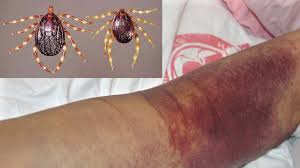Ugandan health officials are sounding alarms as malaria infections surge unexpectedly in northern regions, compounding existing strains on the country's medical infrastructure. The outbreak coincides with peak transmission season, exposing critical gaps in resource allocation and emergency response capabilities.
Regional Hotspots Emerge
Health surveillance data indicates infection rates have tripled in districts bordering South Sudan over the past month. Gulu Regional Referral Hospital reported 1,200 confirmed cases last week alone - a 210% increase compared to seasonal averages. Dr. Acan Oryem, regional epidemiologist, attributes this spike to delayed rainfall patterns creating stagnant water reservoirs ideal for mosquito breeding.
"We're seeing entire families presenting with symptoms simultaneously," said Oryem. "The burden threatens to overwhelm outpatient facilities already operating beyond capacity."
Systemic Vulnerabilities Exposed
Parallel reporting reveals nationwide challenges undermining containment efforts. Critical shortages emerge in three key areas:
- Diagnostic capacity: Only 40% of health centers maintain functional microscopy equipment
- Medication supply chains: Intermittent stockouts of artemisinin-based combination therapies
- Preventive resources: Delayed distribution of insecticide-treated bed nets
Transportation barriers further complicate the crisis, with remote communities facing journey times exceeding six hours to reach treatment centers. The Ministry of Health acknowledges these systemic issues while implementing emergency measures including mobile diagnostic units and community health worker deployments.
Public Health Mobilization
Residents in affected regions receive urgent advisories emphasizing preventative measures:
- Eliminating standing water sources near dwellings
- Utilizing approved insect repellents during dawn/dusk hours
- Seeking immediate testing when exhibiting fever symptoms
International health partners have dispatched rapid response teams to support local efforts. The WHO confirmed shipment of 500,000 emergency antimalarial doses, while UNICEF coordinates distribution of 250,000 insecticide-treated nets to high-incidence districts.
Medical anthropologist Dr. James Kigongo warns of compounding factors: "Climate variability, population displacement, and healthcare access disparities create a perfect storm. Sustainable solutions require infrastructure investment beyond crisis management."
As the rainy season continues through November, officials emphasize that individual preventative actions remain the most effective immediate countermeasure against the escalating outbreak.








Comments (0)
Leave a Comment
Be the first to comment on this article!